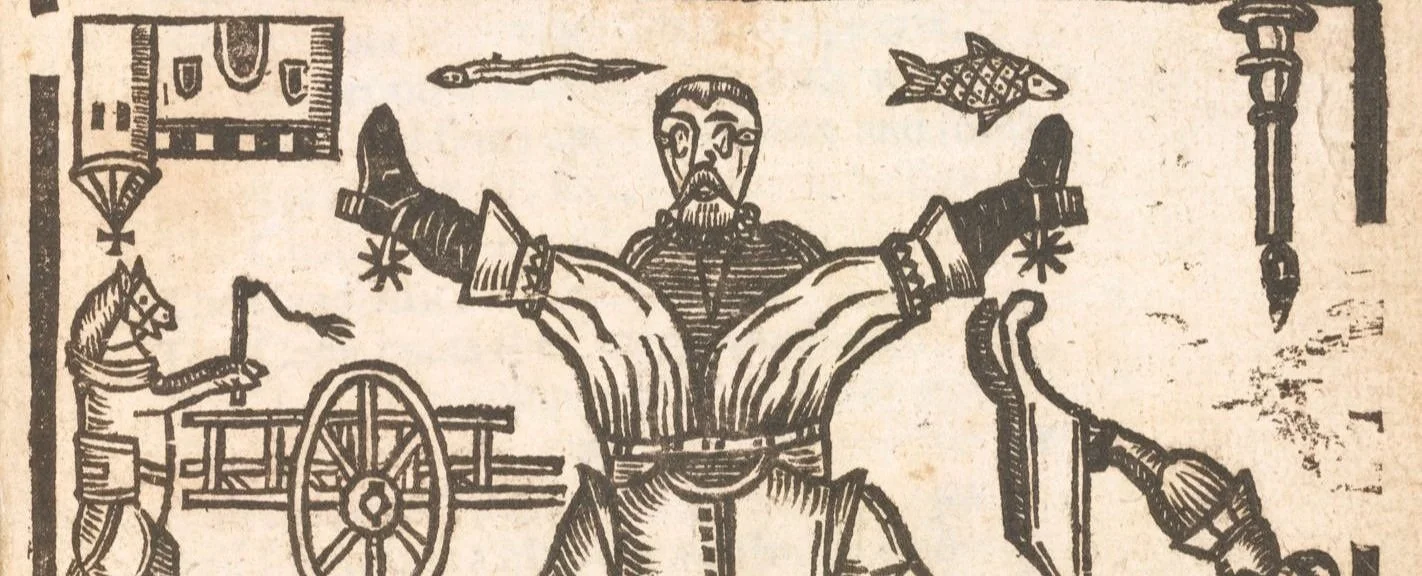
Past Events
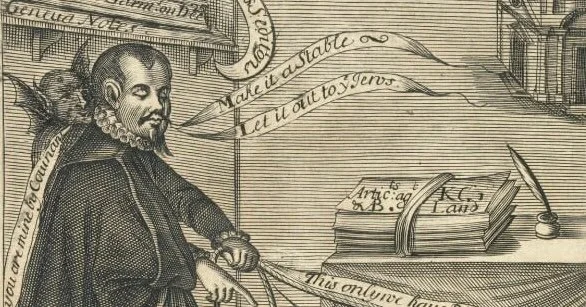
HUGH PETER AND THE ORPHANS: TRACING A 17TH CENTURY CONSPIRACY THEORY
Hugh Peter, former Salem minister and Cromwell’s chaplain, thought he was doing a good deed when he brought 20 English orphans to new homes in New England. But in a twist reminiscent of “fake news” today, Royalists seized on his plan and concocted a conspiracy theory ascribing to him deeply diabolical intentions - primarily, that of perverting young minds with dangerous Puritanism. Historian Samuel Fullerton tells this fascinating and revealing tale.
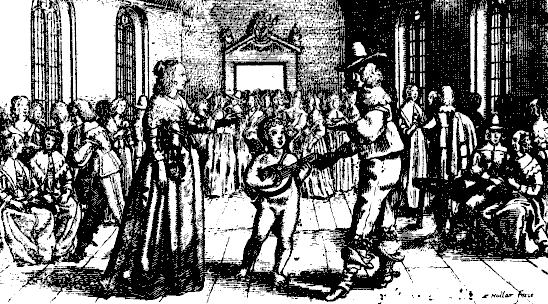
music: it’s a sin!
The theatres were closed and public entertainment banned - that was life in Cromwell’s English republic. The previous decade was marked by violence, disruption, conflict in two civil wars between Royalists and Parliamentarians. How was the ordinary person to carry on? With music, says historian and musician Natalie Kershaw. In this tuneful presentation, we see the past through the eyes of the musician and hear what they had to play. Watch and enjoy!

Radicalism and resistance in the english civil wars
Long before the American Revolution, an astonishingly radical movement in the run-up to the English civil wars proposed ideas such as inherent rights, equality and representation. Historian Rachel Foxley of the University of Reading discusses the intellectual origins of this radicalism, their role in the Parliamentary struggle against the monarch, and their influence in the 1650s during the Cromwell republic. A wholly fresh and new history for most of us!

resisting Tyranny, Defining Liberty
As rights to freedom from arbitrary arrest, to protest, to privacy are debated today, award-winning historian Francis J. Bremer looks at the very first founding of American legal rights in the form of the Body of Liberties, a 1641 bill of rights offering unprecedented rights and liberties to white colonists in Massachusetts and even - in law, if not in practice - enslaved people, “foreigners” and Indigenous people.
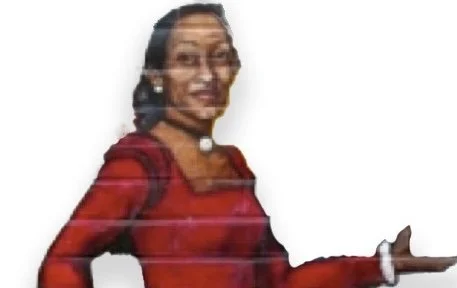
The slews and hoars of beverly: from witchcraft to slavery
Historians Jeanne Pickering and Krystina Yeager tell an up-close story of two women of Beverly whose lives weave together the themes in New Engalnd history we think of as dichotomous: witchcraft and slavery. From the thief and cow-beater Dorcas Hoar to the victory of her enslaved descendant Jenny Slew, who won her freedom from a white jury, this is an unequalled tale.
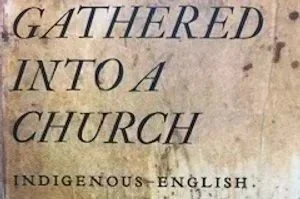
gathered into a church: indigenous-english congregationalism
For centuries Congregationalism has been studied as a purely English faith - a legacy of the Puritans. But as author Lori Rogers-Stokes’ groundbreaking research shows, in fact its congregations were mixed: white, black, and Indigenous. The church itself, as the case of Hasanamisco illustrates, was shaped by its Indigenous members in its most foundational aspect: how to be a full church member. Join us for an eye-opening evening and celebrate the launch of Lori’s new book.

Resistance: Ending Witch Hunts
Renowned historian Emerson Baker, together with guest moderators Sarah Jack and Josh Hutchinson of End Witch Hunts, take up the story of New England witchcraft to look at the people who resisted. What gave them the courage to stand up for their neighbours, friends and acquaintances, at risk to themselves? Find out about the petitions, letters and other acts of resistance that helped bring the witch trials to an end.
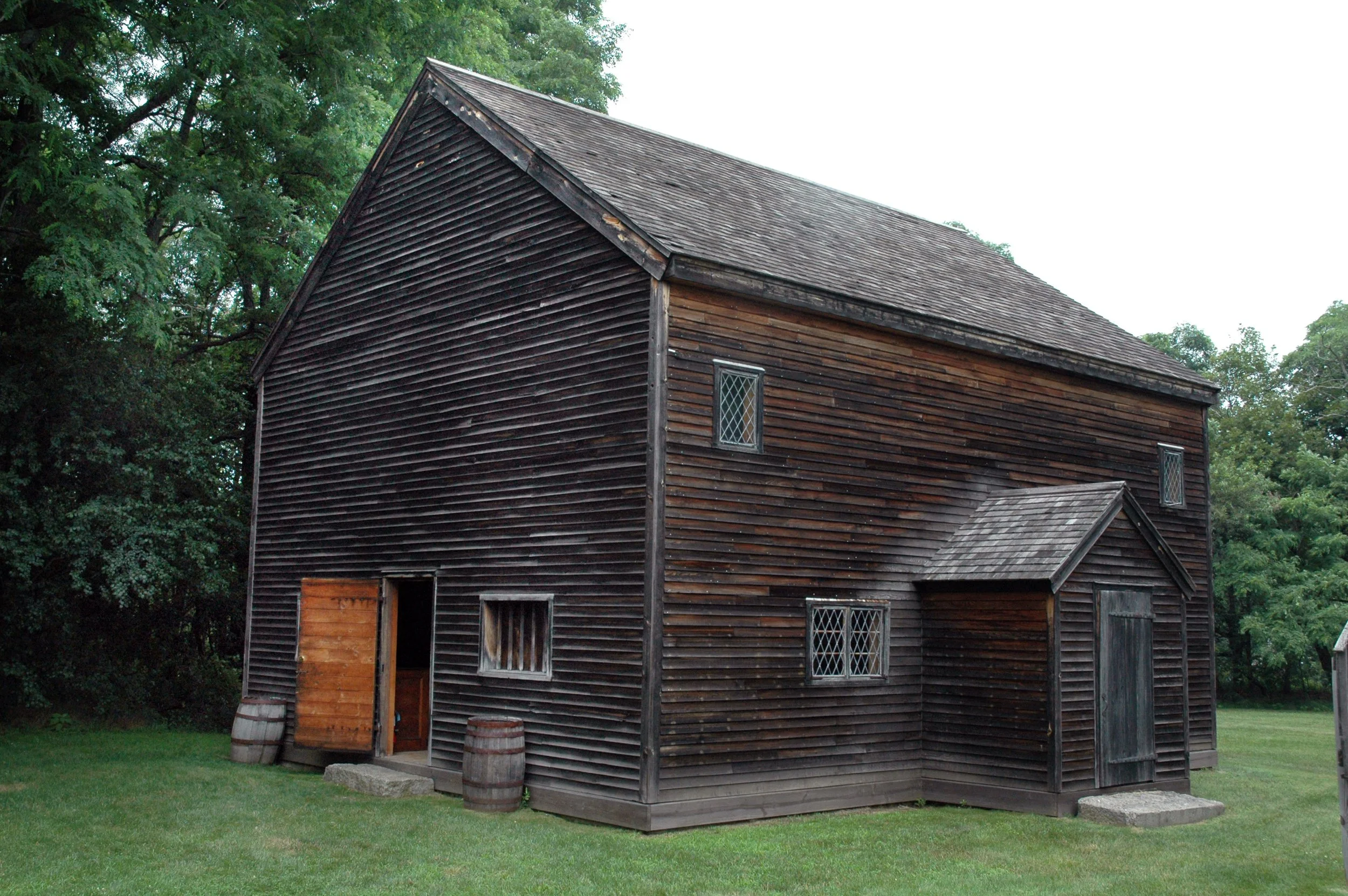
the other: understanding witch hunts, part i
Award-winning historian Emerson “Tad” Baker joins End Witch Hunt podcasters Sarah Jack and Josh Hutchinson in a free-wheeling discussions of the causes and consequences of witchcraft. Who gets singled out for accusation? What drives their accusers? And a question we might consider in this time of division and polarisation: how do neighbours and relatives get turned into the “other” - a demonic enemy?

SUING SLAVERY: ESSEX COUNTY FREEDOM SUITS, 1763-1784
In the lead-up to the Revolution, 21 enslaved people in Essex county, Massachusetts, sued for their freedom - and won. Their stories, eloquently related by independent historian Jeanne Pickering, convey the struggle to end slavery, the dilemma in which white juries were placed, and the way that enslaved people redefined the meaning of freedom in Massachusetts. Watch this important presentation, given in June 2025.

A Tradition of Resistance: The Puritan Prequel to the American Revolution
From the outset, New England’s new colonial settlers were determined to establish their independence - to the point of taking up arms against Charles I’s attempt to reclaim the charter. Renowned historian Francis Bremer explores the Puritan prequel to the American Revolution: their stubborn refusal to submit to arbitrary rule, support for the parliamentary cause in the English civil wars, and insistence on what later became a proto-democracy for the majority of white men.
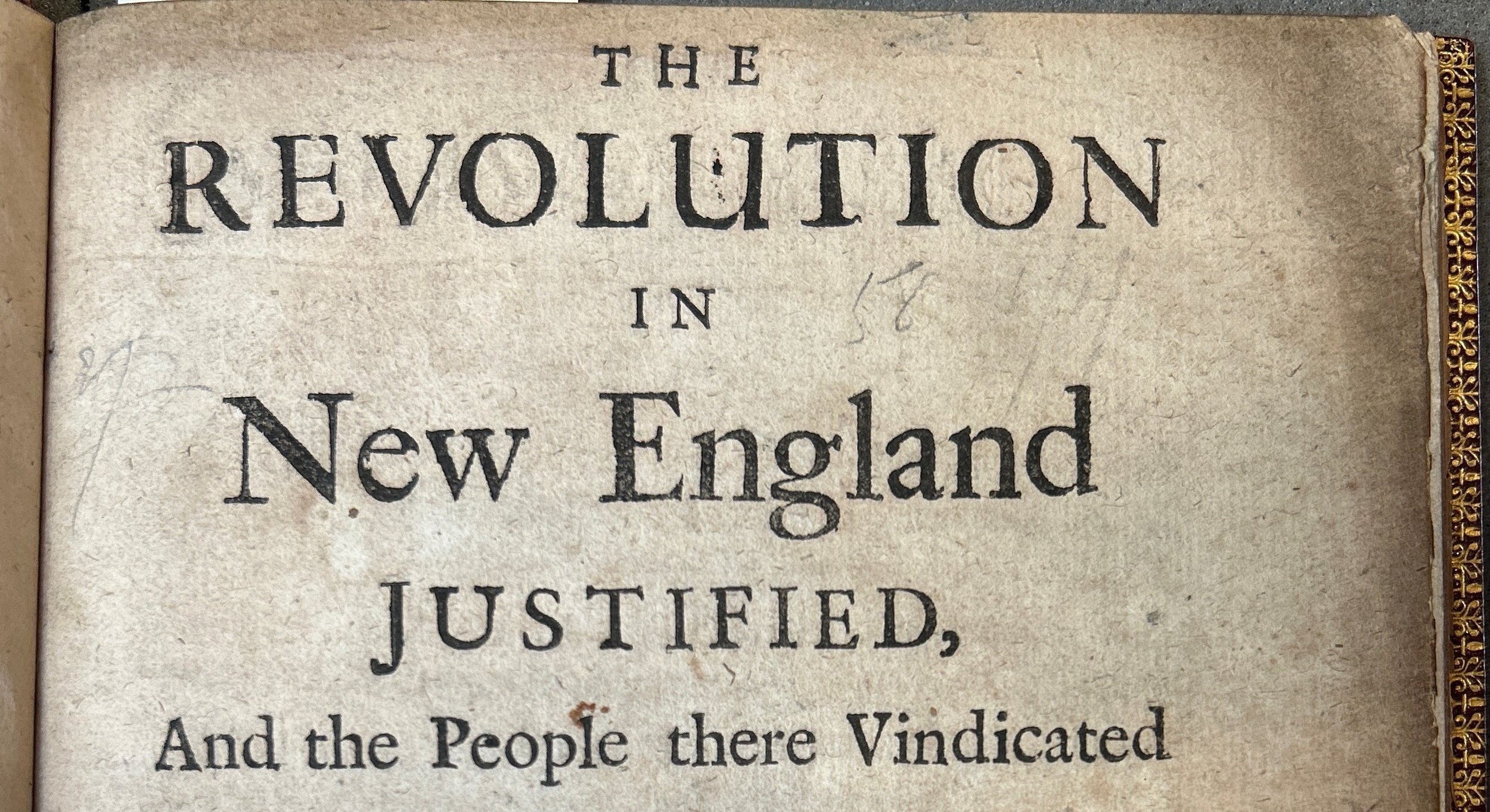
The Revolution Before the Revolution: Boston, 1689
We think of America’s revolutionary moment as 1775 and 1776. But nearly a century before, New England rose up against the Crown, imprisoned the royal governor, refused to pay tax without being represented, and resisted arbitrary rule. Prize-winning historian Adrian Chastain Weimer offers us a unique insight into this revolution before the (American) revolution during the Puritan-Whig Revolution of 1689. Take that, Lexington and Concord!
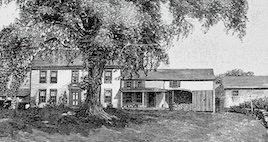
ENSLAVEMENT IN A PURITAN VILLAGE: THE HIDDEN STORY
Sudbury, Massachusetts (now Sudbury and Wayland) was lauded as the quintessential Puritan village, a model of early democracy. But was it? Drawing on church records, bills of sale and medical notebooks, author Jane Sciacca explores the intimate lives of enslaved people and enslavers, such as the Rev. Loring, whose home is pictured here. A fascinating and important account, too, of Jane Sciacca’s own journey of understanding a hidden history in her home town.
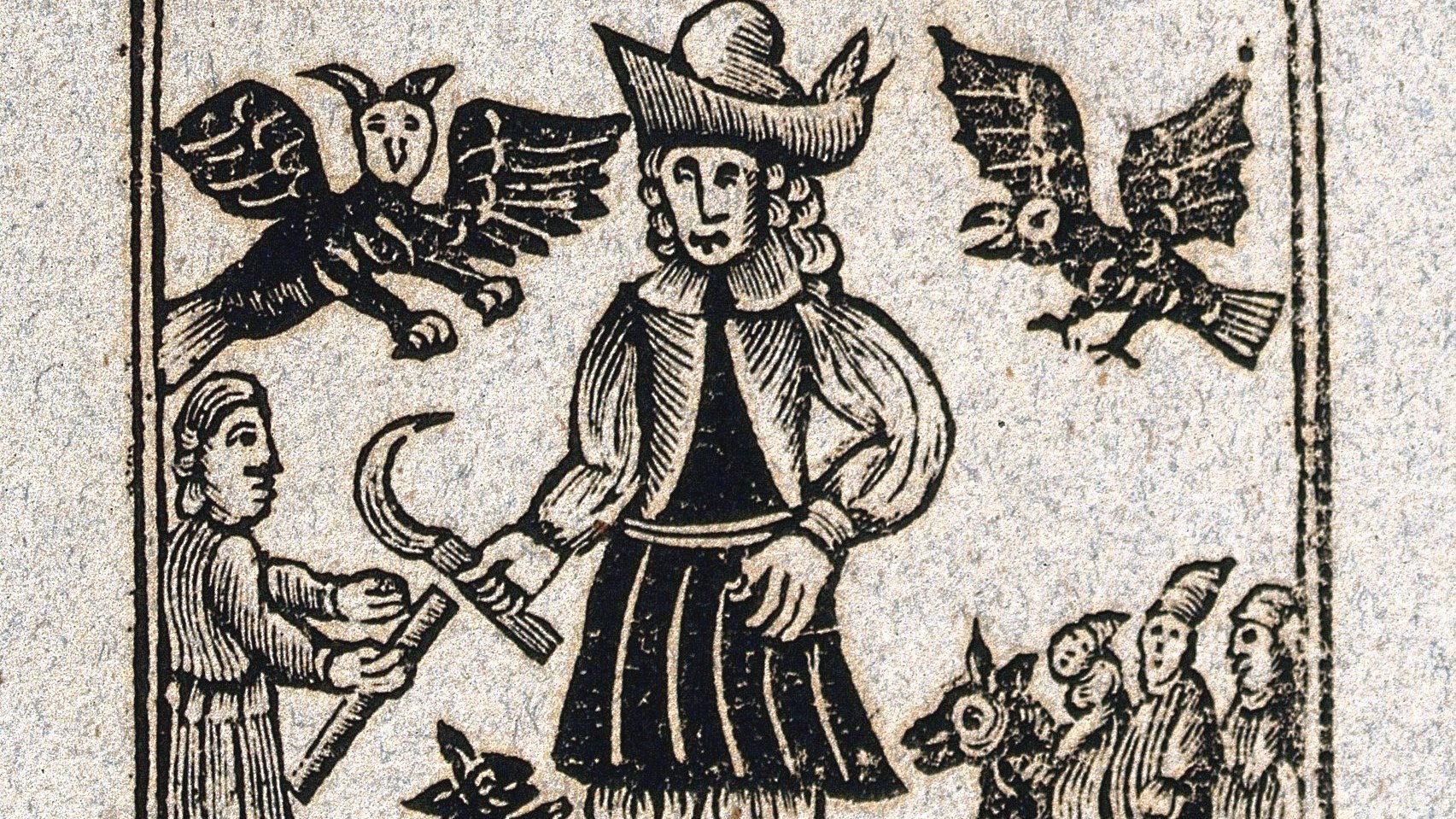
Wonders, Portents and Providences in early new england
Ships in the sky, "monsters" born to unruly women, babies prophesying from their cradles, flying devils: welcome to the mental world of 17th century New England. Renowned Harvard historian David Hall explores the way that early New Englanders understood their world. Today we would call this magical thinking; then, it explained the world and its otherwise inexplicable events, large and small, as God’s providences. Enter a world in which the line we take for granted, between reality and mystery, was blurred.

SIGNS, STORIES AND UNRAVELLING MYTHS: concord, ma, tackles its history
What happens when a storied town challenges the received wisdom about its past? Concord, Massachusetts, educator Joe Palumbo looks at the tough conversations as 21st century Concord takes a look at how it portrays itself and what needs to change. Far from being the “first” settlement of 1635, the colonists followed in the footsteps of Native people.

“Petition after petition”: Boston’s black freemasons fight for freedom
Nearly 150 years after the Puritans wrote laws granting themselves unprecedented rights, Boston’s Black Freemasons petition for freedom - claiming the rights denied to them from the start of the colony. In the Revolutionary era, they wrote, it was a bitter irony that they were “detained in a state of slavery in the Bowels of a free Christian Country.” Historian Chernoh Sesay Jr. offers a brilliant account, shedding light on the complicated relationship between tyranny and liberty.
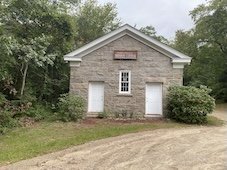
I Pledge allegiance: sovereignty and sanctuary in the dawnland
Historian and Narragansett tribal member Mack Scott explores the world of 17th century Narragansett Country - where people as diverse as Pokasset sunksqua Weetamoo, Roger Williams and Anglican William Blackstone, found sanctuary and self-determination. What new political and diplomatic allegiances were formed in the Dawnland? What can we learn about creating sanctuaries today?
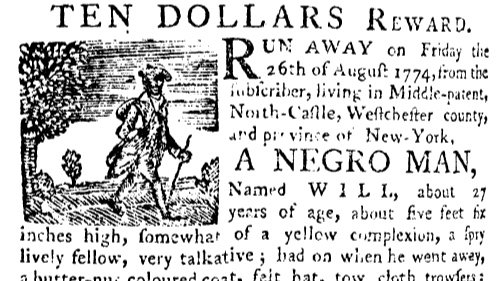
Undergrounds Before Rail: Escaping Slavery, Claiming LIberty
If you couldn’t vote in elections, you voted with your feet. Award-winning historian Margaret Newell, author of Brethren by Nature, tells the story of the 17th and 18th century people who rejected tyranny and ran away - fleeing slavery with the help of a wide underground network of Indigenous and Black people. Egypt Lloyd, co-founder of the Slave Legacy History Coalition and descendant of enslaved people in Cambridge, joins this exploration of claiming liberty, along with historian Linford Fisher as moderator.
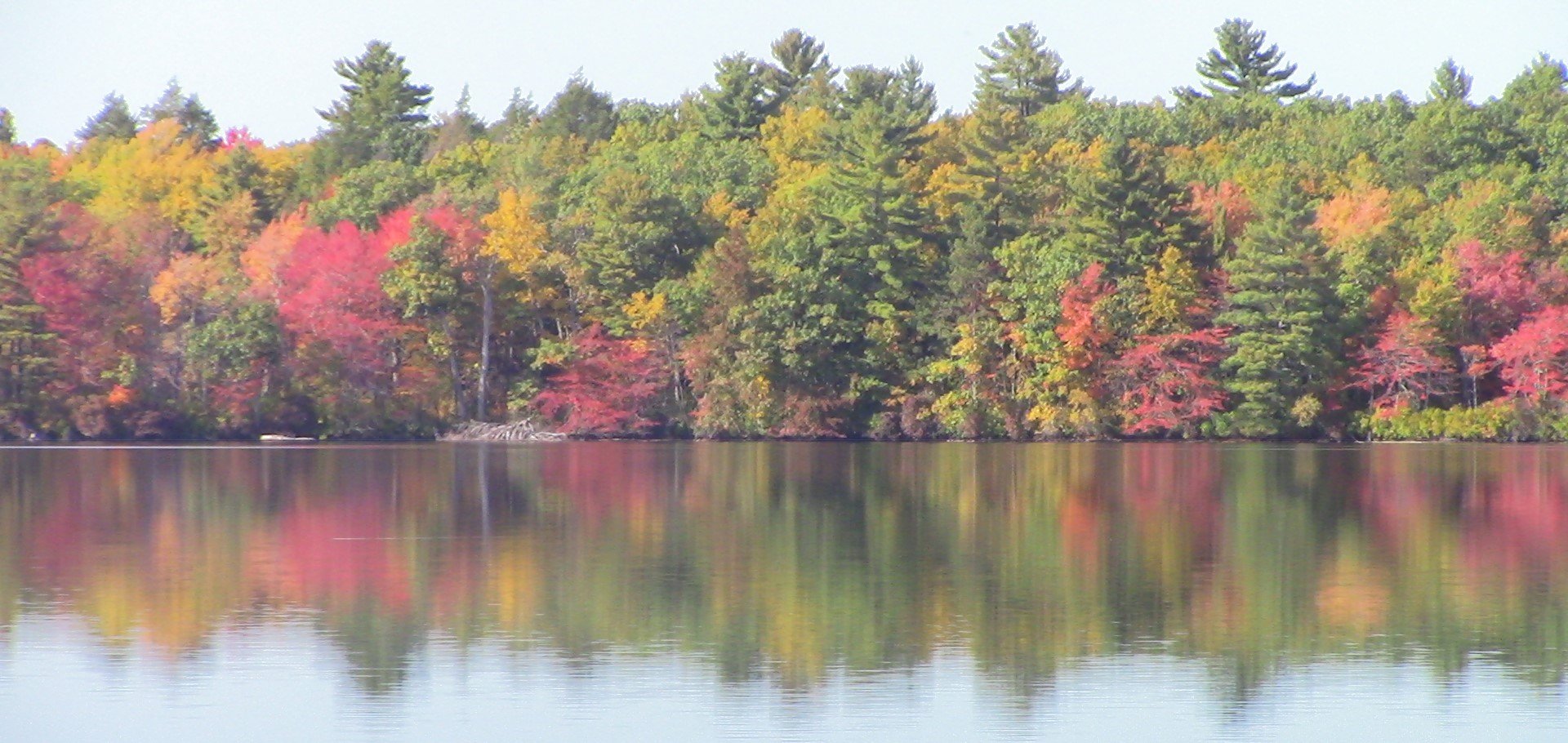
a nation in balance: sovereignty, earth and right relation
Aquinnah Wampanoag citizen, educator and author Linda Coombs delves into the true meaning of sovereignty and governance as being in balance with the earth - as practiced by Native people for thousands of years until colonization. in the Eastern Woodlands, Puritan liberties meant tyranny for Native people - the disruption of their relationship to the land and of Indigenous lives. It’s a denial of rights that continues today.
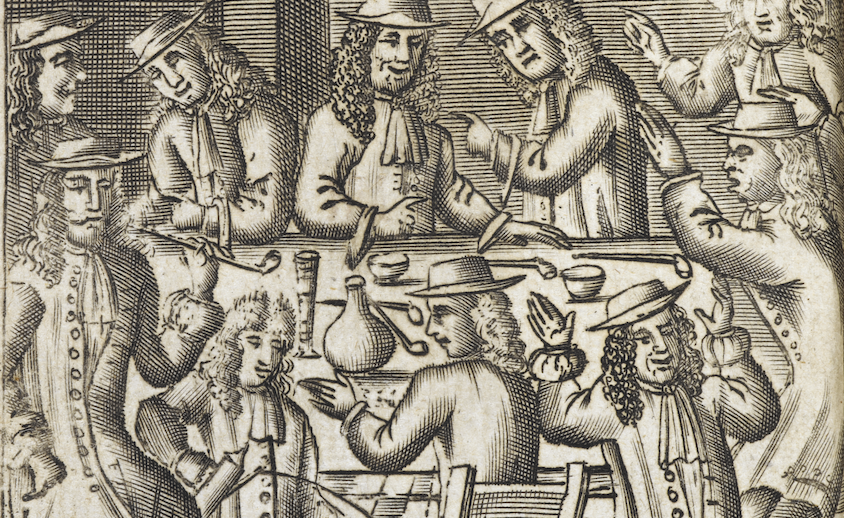
NO COMMON WEALE BUT BY COMMON CONSENT: GOVERNANCE IN PURITAN NEW ENGLAND
Imagine a world in which political leaders retire gracefully after electoral defeat, in which voting rights are expanded, not restricted, and where there’s free and vigorous debate. Welcome to 17th century New England, where the Puritan colonists developed, for the majority of free white men but not women, Natives or Black people, the most radical society in the English world. As Americans prepare to go to the polls, what legacy did the Puritans leave us? Award-winning historian Francis J. Bremer explores Puritan history, warts and all.

what the puritans left behind
The tyranny of Charles I, royal prerogative and decrees, arbitrary taxation, entrenched inequality - all this and more the Puritans tossed overboard as their ships set sail not just for what was for them a new world, but a new polity. Award-winning historian David Hall, Harvard Divinity School, explores the politics of 17th century England and the religious and social context that drove the Puritans to create a wholly new society.

boston: the prequel
How did Boston, Massachusetts, get its name? Historian Neil Wright looks to the American city’s prequel: the small town of Boston, Lincolnshire, on the east coast of England. Today known as the town which voted overwhelmingly for Brexit, Boston has a storied history: as a major player in the Hanseatic League, a medieval port, and the origin of many of the Puritan colonists who settled on the Shawmut peninsula and named it for their hometown.
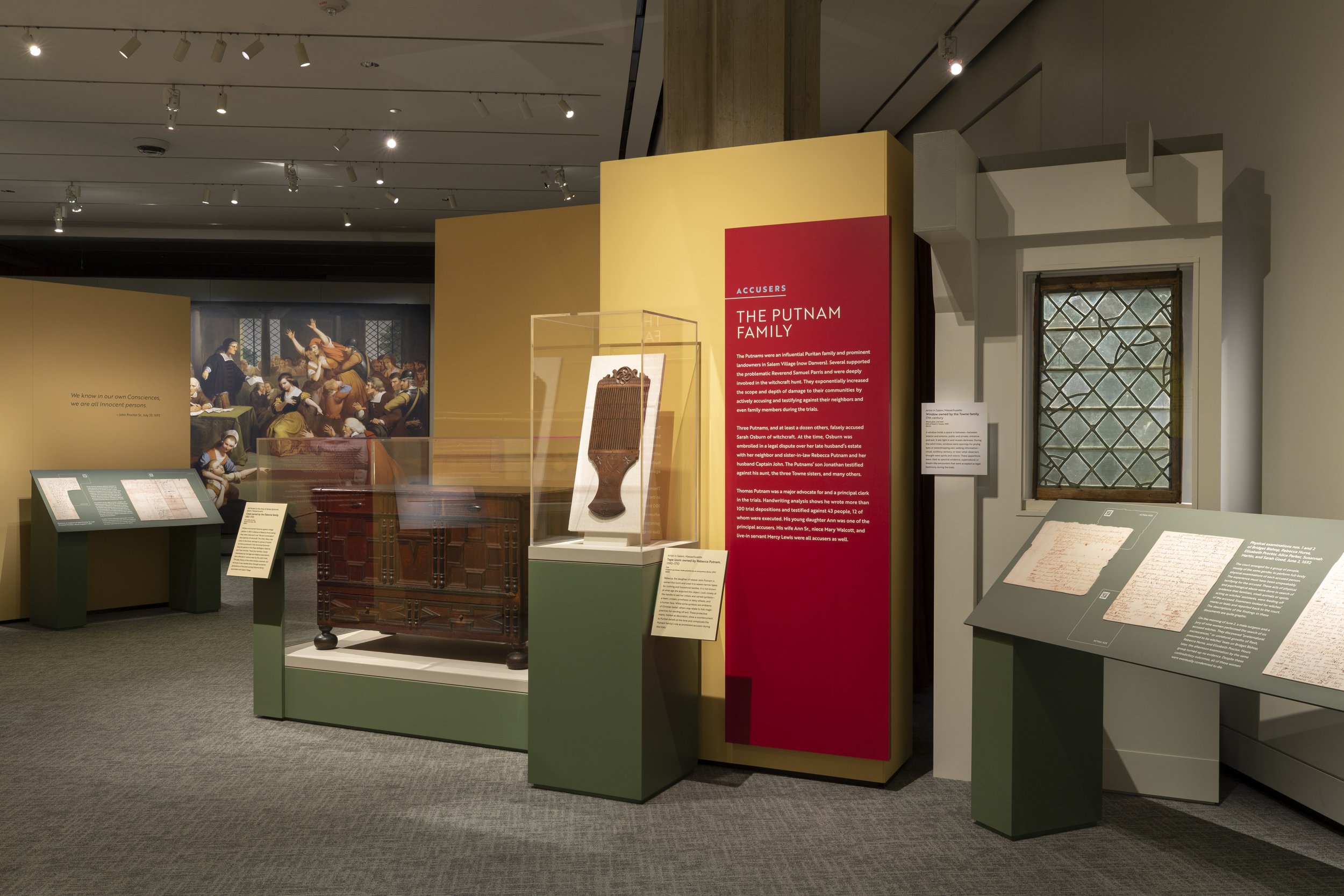
salem witch trials: interpreting history and finding relevance
Which story of the Salem witch trials do we know? Two curators, witchcraft experts at the world renowned Peabody Essex Museum, explore the different ways the Salem trials are remembered, and how that reflects our understanding of magic, witchcraft and gender today.
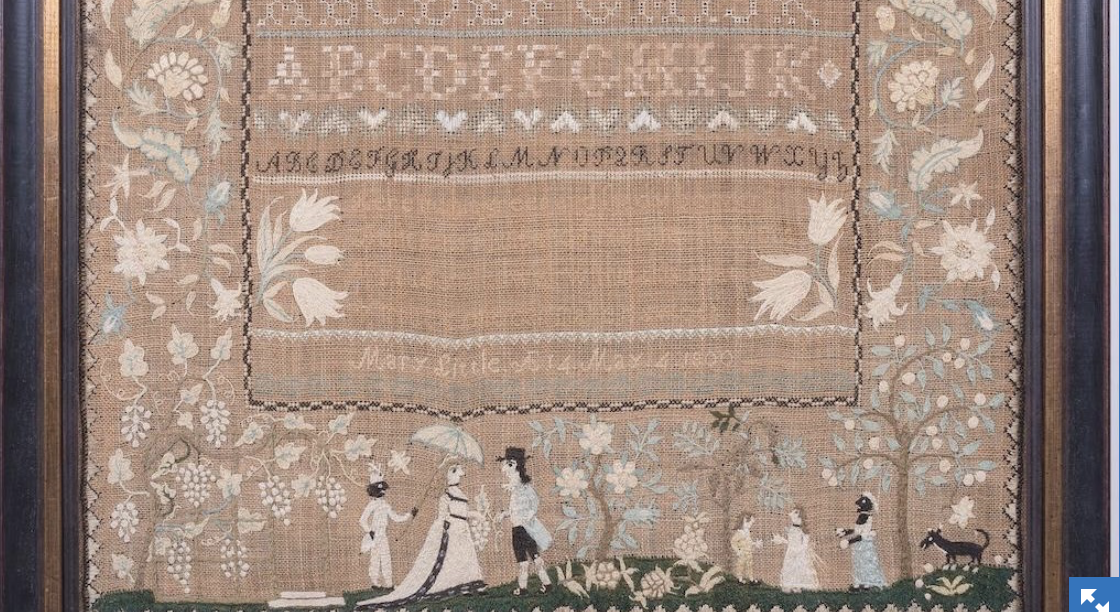
Unseen New England
Emelie Gevalt, curator at the American Folk Art Museum, explores black presence and absence in early New England art - and what it tells us about the particular nature of New England slavery, simultaneously intimate and distanced, centred in households and shared space. This presentation is based in part on Emelie Gevalt’s curated exhibition, widely acclaimed, Unnamed Figures, at the American Folk Art Museum and Historic Deerfield.
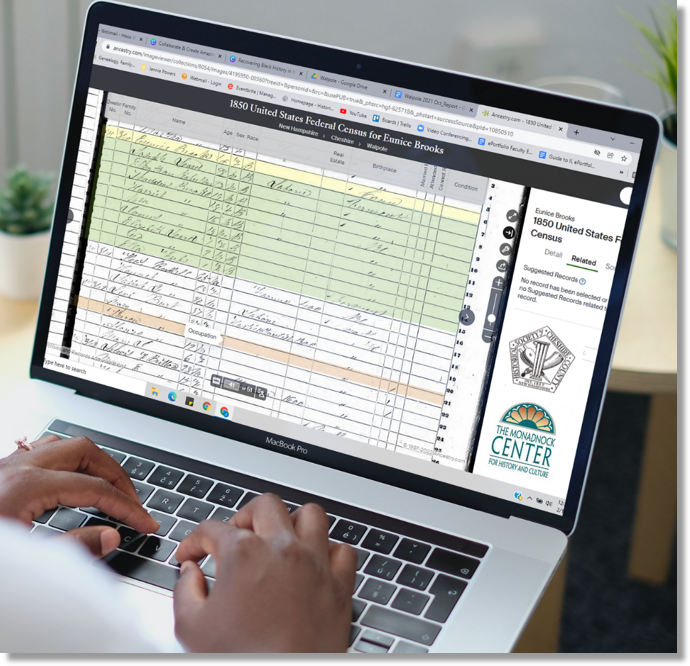
RECOVERING BLACK HISTORY: A WORKSHOP
“It’s as though people have come out from the shadows,” commented a local historian about her groundbreaking project, Recovering Black History. To date it’s discovered the names and lives of nearly 500 members of the Black community in southern New Hampshire - an area thought of as white. This workshop, led by superb local historians, shows you how you, too, can undertake the research in your town and change the way we understand our histories.

remembering the brooks family
Who do we remember - and who do we forget? Join archaeologist Gail Golec and descendant Ray Brooks in tracking down the forgotten story of four generations of the Brooks family and, in so doing, revealing a hidden past of New England’s black community. Part of a larger project on recovering black history run by the Monadnock Center for History and the Historical Society of Cheshire County, New Hampshire.
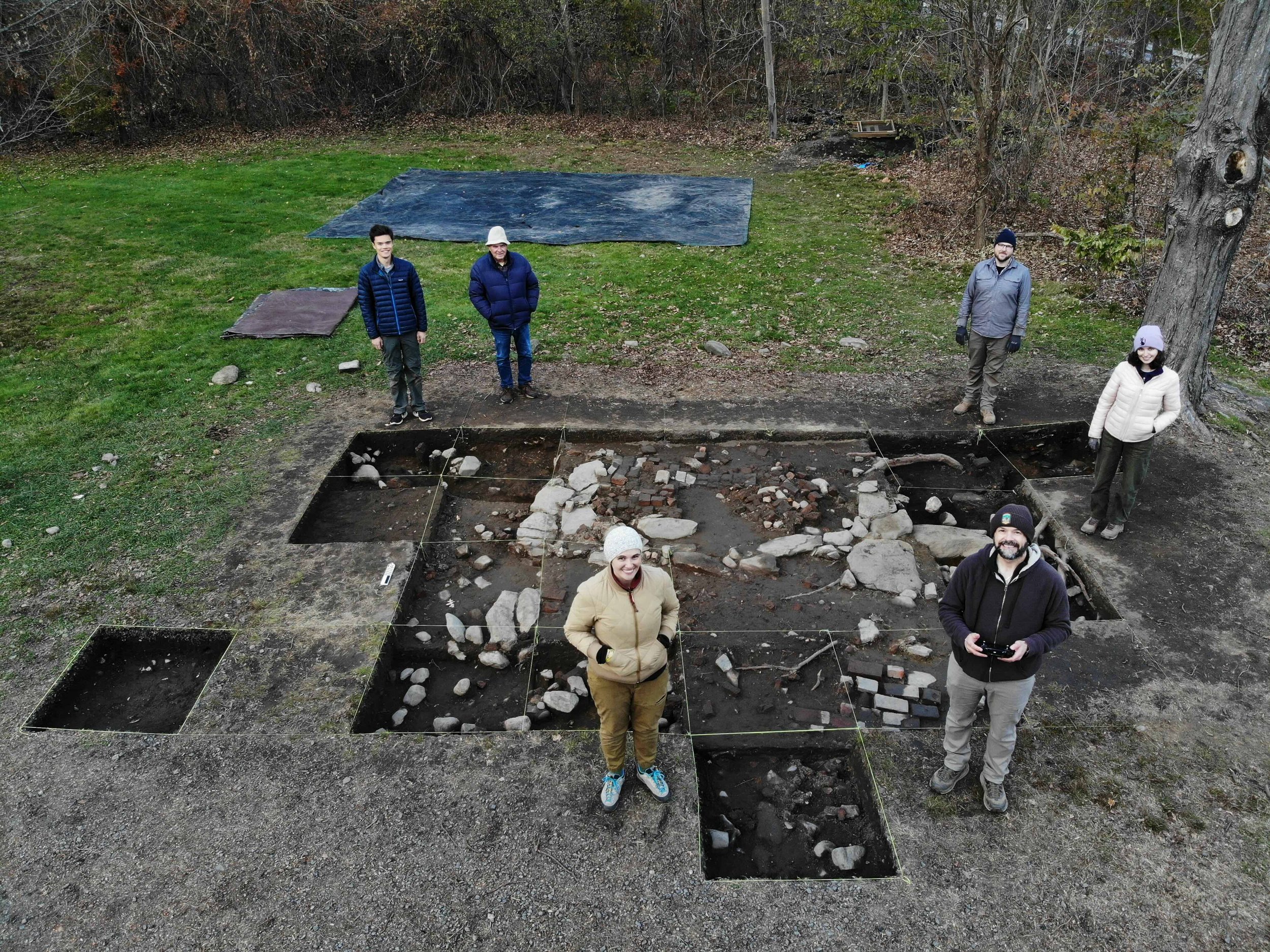
Finding anne bradstreet
Join us for a fascinating dig into the past as we open the door to the Bradstreets' North Andover home - and welcome you to a crucial part of the history of Anne Bradstreet, North America's first published poet .
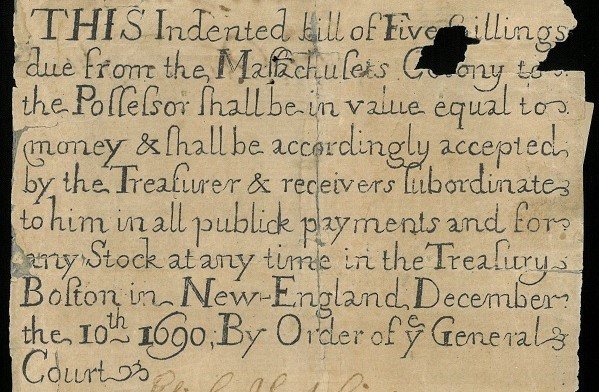
Easy Money: New England Puritans and the INVENTION OF MODERN CURRENCY
Economic historian Dror Goldberg offers a fascinating look at a little known facet of New England history: how the Puritans, forced by circumstance and enabled by their intellectual and administrative abilities, invented modern currency. Despite resistance - shopkeepers refused to accept the new bills - the new money took hold, and revolutionised the (financial) world.

Race and slavery at the first church in roxbury
Harvard PhD candidate Aabid Allibhai offers stunning new research showing just how entwined the Boston area elite was with slavery. Joined by former member of the Massachusetts House of Representatives Byron Rushing and the Rev. Mary Margaret Earl, he takes our enslavement series up to the 21st century, asking: how does this past affect us today?
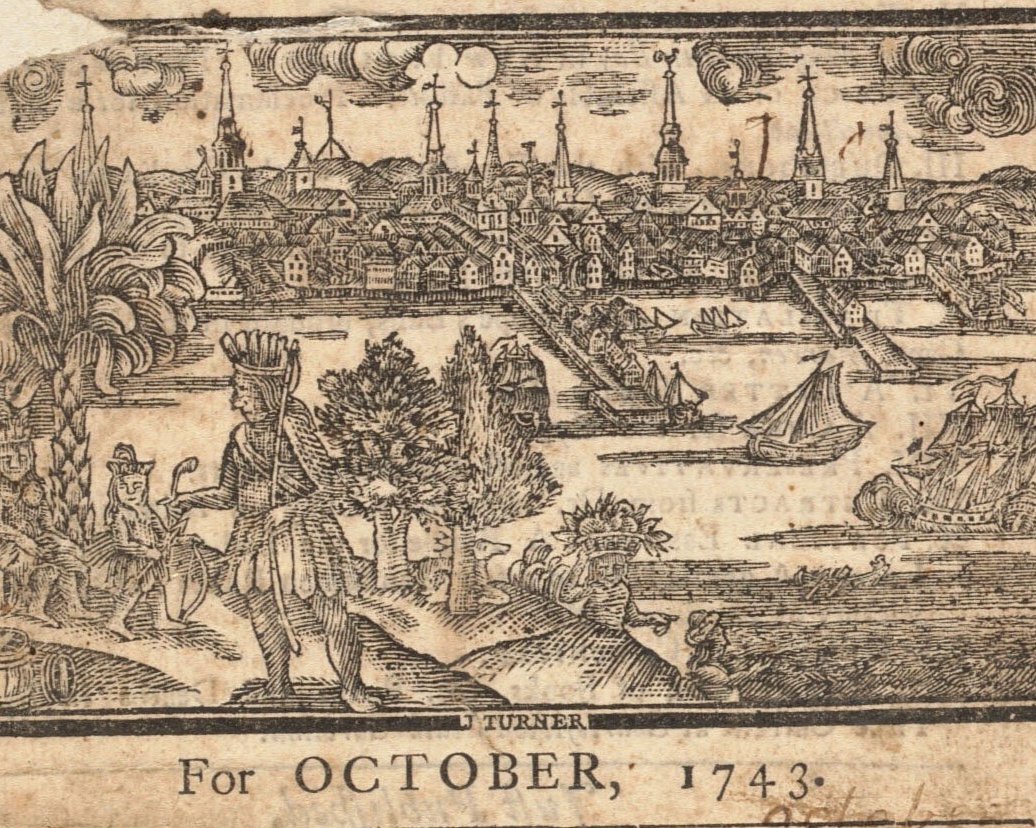
enslaved christians: black church members in an era of cotton mather
Historian Richard Boles takes us back to a world in which Puritan theologians could at once justify slavery and see enslaved people as spiritual equals in heaven. This trenchant, in-depth lecture explores the theological underpinnings of New England slavery, the ways in which religion laid the groundwork for a rejection of slavery in the post-Revolutionary period, and how enslaved people made their churches their own.
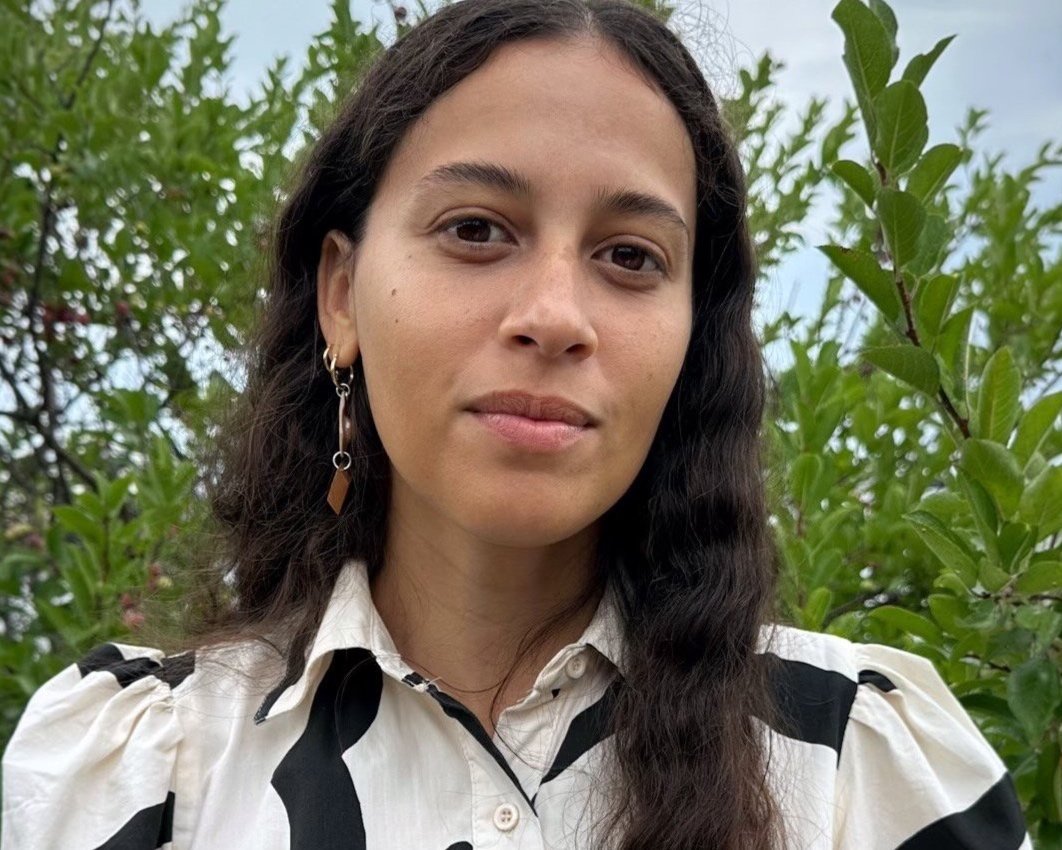
stolen relations: centuries of native enslavement in the americas
From the time of Columbus’ arrival to 1900, up to 5 million Indigenous people in were enslaved in the Americas. How have we overlooked this crucial fact of history, and how does New England fit in? Historian LInford Fisher, Cheryll Toney Holley (Nipmuc), Alexis Moreis (Wampanoag), and Loren Spears (Narragansett) tell the story of Indigenous people in New England and how they have both survived and thrived - a story now being documented in a remarkable new project at Brown University.

